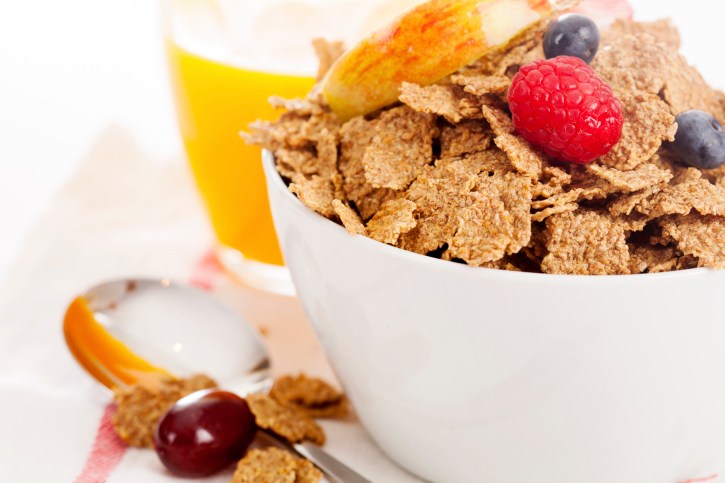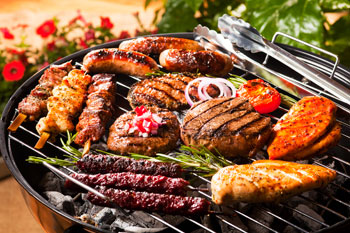Lose Weight > Common Sense To Lose Weight > Common Sense Article > Stop Laundering Your Energy Money
Stop Laundering Your Energy Money
Wash in the lowest needed temperature and rinse in cold water. Most of the energy used for the clothes washer is consumed at the water heater, about 80 to 90%. Top load washers have tubs which can use 45 to 60 gallons of water per load. Front end washers use only about 17-26 gallons. If hot water is selected on the washer, then most of the above water comes from your water heater. Using the lowest water temperature is the best action to reduce energy consumption of your clothes washer.
Fill tub completely. If this is not possible, then adjust water level to the load. Waiting until there is enough dirty clothes for a full load will minimize the time the washer is used. However, overloading the washer may prevent sufficient cleaning of all the clothes. In the few cases some clothes must be washed, adjust the water level.
Use gentle cycle when possible. The washer also has an electric motor to spin the tub (drum) and agitator. Less energy is needed for a gentle agitation. Energy Star qualified front end washers do not have an agitator.
When buying a new washer, consider front end washers that are Energy Star qualified. Front end washers use less water and energy than top load washers. Energy Star qualified washers use over 40% less energy and water. Even if a washer is Energy Star qualified, energy use can vary between models and manufacturers. Always compare the yellow EnergyGuide tag posted on the appliance.
Dry your clothes outside on a clothesline. The clothes dryer has an electric or gas heater to dry the clothes. These heaters can be quite large, requiring a 240 volt connection in the US for electric heaters. Most of the energy used by the dryer goes into the heater. There is a fan to pull air through the drying clothes and out through a vent; and a motor turns the drum. The energy used by the clothes dryer is similar between models and manufacturers. Since there is little that can be done to reduce energy, they are not required to display EnergyGuide tags and are not included in Energy Star requirements. To save energy runtime must be reduced. The greatest reduction in runtime comes from drying clothes outside; let the sun do the work. Some homeowner associations do not allow or restrict the use of clotheslines.
Clean lint filter after every load. Lint in the filter slows the airflow and results in longer time to dry clothes. Make sure entire vent to the outside is clear of lint.
Using spin dry features of the washer saves drying time. Spinning your clothes in the washer pulls water from your clothes by means of centrifugal force. This uses less energy than the heater in your dryer. Energy star qualified washers spin clothes two to three times faster. More water is extracted which reduces dryer run time.
Do not over dry clothes. This runs your dryer longer than needed, wasting energy. When buying a new dryer, consider one with a moisture sensor.
Do not forget other devices that use energy. The use of the clothes iron is declining in our fast pace permanent press world but they do use energy when used. Irons can pull 1000 to 1800 watts. Use irons only when needed and make sure you do not leave it on. A sink may be used to aid in stain removal. Any use of hot water will use energy at the water heater.
To summarize, the major factor in energy use of clothes washers is water temperature. Try using warm water instead of hot water. Use cold water for colors and delicates. Rinsing can be with cold water. There is no advantage to rinse with warm or hot water. There is little control over the heat used by the clothes dryer; simply, do not run the dryer when it is not needed. These efforts will stop wasting energy when you do laundry.
Related Articles
-
How to Lose 15 Pounds Fast and Healthy
Whether you have someone that you really want to impress, or you have
-
Potent Methods To A diet In Daily Life
The last thing it is likely you want is a bunch of empty information.
-
Your Health and Your Weight
Your health and your weight are connected. According to the
-
Learn About The Facts Related To The South Beach Eating Plan - So How Exactly Does The South Beach Diet Program Work
In case you would like to begin the South Beach diet you probably w
-
Is it Possible to Lose 15 Pounds in 2 Weeks?
Kim Kardashian did it and so did Beyonce Knowles. So, it is possible t
-
Can I Combine Different Types Of Natural Weight Loss Pills For Effective Fat Loss?
Since we all live in a fast-paced society, we expect things to work ou
- DON'T MISS
- Get To Know More About Capsiplex Through A Comprehensive Overview
- My Mythical Journey to Gourmet Tea Bags
- High Blood Pressure Diet Guidelines
- Simple Diet Tips to Lose Weight Easily
- Weight Loss Surgery Texas: Three Options to Regain Optimism in Life
- Common Myths About Dieting Plans
- Handy Tips For Losing That Extra Weight
- How To Have Natural Weight Loss Quick
- Best Tips And Tricks To Lose Stubborn Weight Now!
- Weight Loss Goals - Diets That Work For Women




